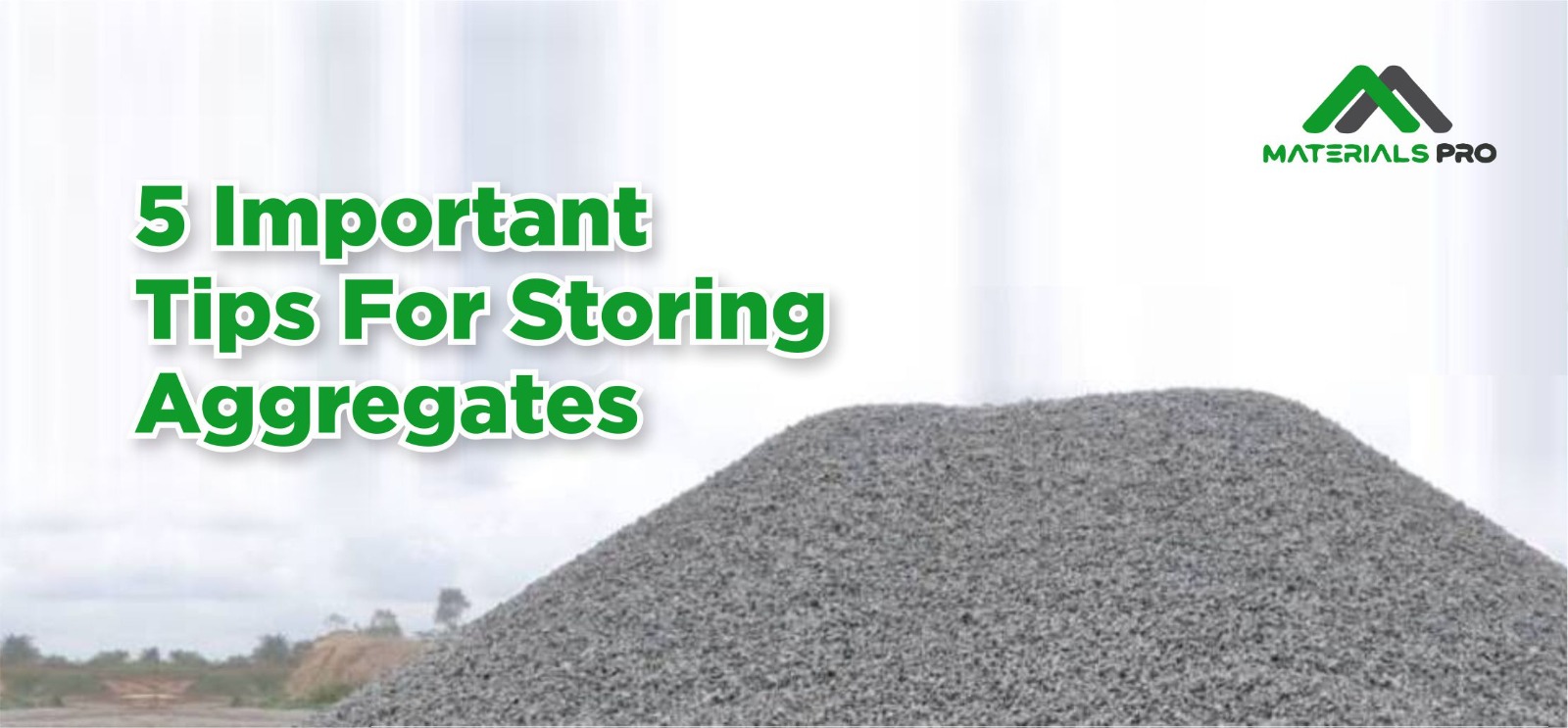5 Important Tips for Storing Aggregates
MaterialsPro
Feb 22, 2023 - 4 minutes
Aggregates are an essential part of any construction project. They are used in all kinds of projects to make concrete, asphalt and mortar to build and maintain structures such as roads, buildings, walkways, railways, and airport runways, to mention but a few. It largely helps manage production costs and improves the resistance of concrete mixes. About 60% to 70% of the volume of concrete is made of crushed aggregate. Because of its importance, proper management and storage are essential to ensure the quality and safety of use.
Whether you are a seasoned professional or just starting in the construction industry, the following five tips will help you store aggregates correctly during construction works:
Monitor Moisture Levels
It's important to monitor moisture levels in aggregates as excess moisture can affect the overall quality and stability of the structure. Moisture can cause issues such as expansion and contraction leading to cracking, or even the growth of mould and mildew. This can result in reduced strength and durability, making it necessary to frequently check and adjust moisture levels to ensure the longevity of the structure. To make inspection easier, it's recommended to store different types of aggregates separately. This way, any changes or issues can be easily identified and addressed.
Keep Aggregates Separated
Oftentimes a project requires multiple types of aggregates. If this is the case, different aggregates should be kept separately to avoid contamination. Coarse aggregates and fine aggregates should be kept at a distance from each other.
A pyramid stockpile is highly recommended for storing both granite and sand as it creates a stable and self-supporting structure that minimizes the amount of space needed for storage. Doing this makes it easy to access and manage the materials. Additionally, pyramid stockpiling helps to reduce material degradation and contamination, as the materials are stored in a controlled and organised manner.
Choose Flat, Leveled Ground
It is recommended that aggregates are stored on clean, hard, flat and level ground, away from debris and other unwanted elements within the project site. If such a surface isn't available, then a platform of planks, a floor of bricks or a thin layer of concrete can come in handy. Also, choose a location that is easily accessible for trucks, loaders and other construction equipment.
Storage Area
When storing aggregates, the amount of space on site and the chosen delivery method should be taken into account. A small amount of space might be needed if you're receiving the delivery in bits. Bulk deliveries, however, require more space. To keep the site free, the storage space needs to be divided from the rest of the property.
Accessibility
This should be based on how often you'll need to access the stored aggregates. Your storage area should be accessible to personnel at the sites for easy transfer and movement across the sites. Also, should you be taking deliveries of aggregates regularly, then you will need to choose a storage space that allows for ease of unloading.
How you treat aggregates at project sites could impact its quality. And taking necessary precautions in the storage and handling of these essential materials is a great way to ensure your construction work runs smoothly and, more importantly, project longevity.
MaterialsPro is an on-demand B2B eCommerce technology platform for bulk building materials, providing timely & scheduled deliveries, at great prices.
Sign up here or send an email to [email protected] to schedule a meeting.

